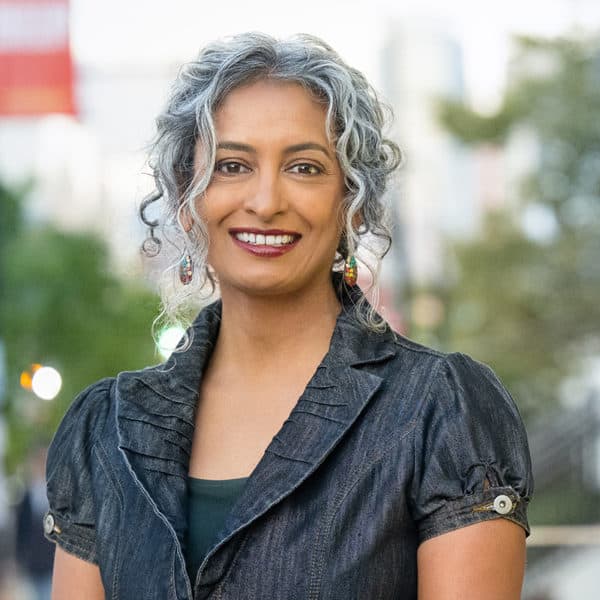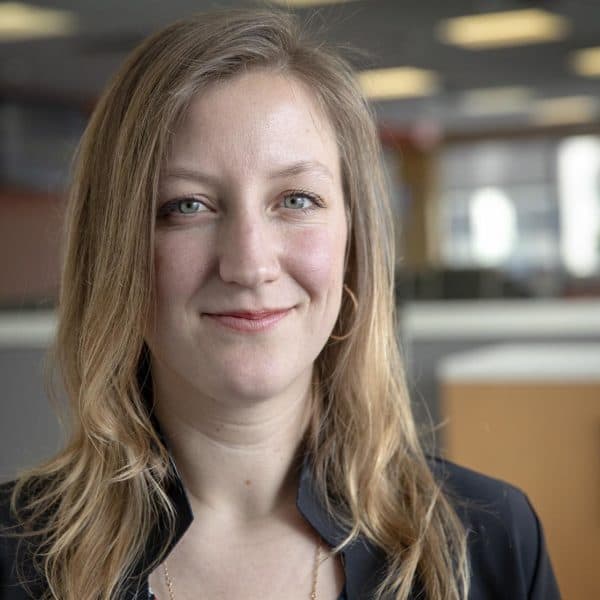Advertisement
‘Play is powerful’: Early childhood educators in Maryland, New Mexico win teacher of the year honors
Resume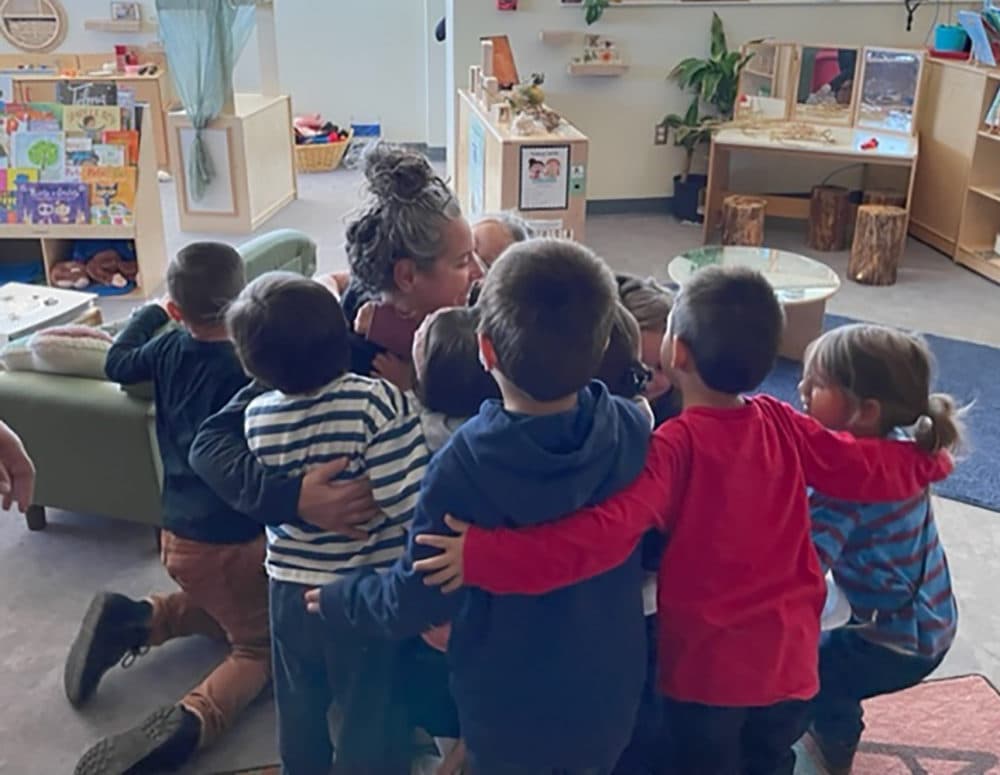
Early childhood educators rarely get the spotlight typically saved for K-12 teachers.
But that’s starting to change, as two states have recently awarded teachers of young children top honors.
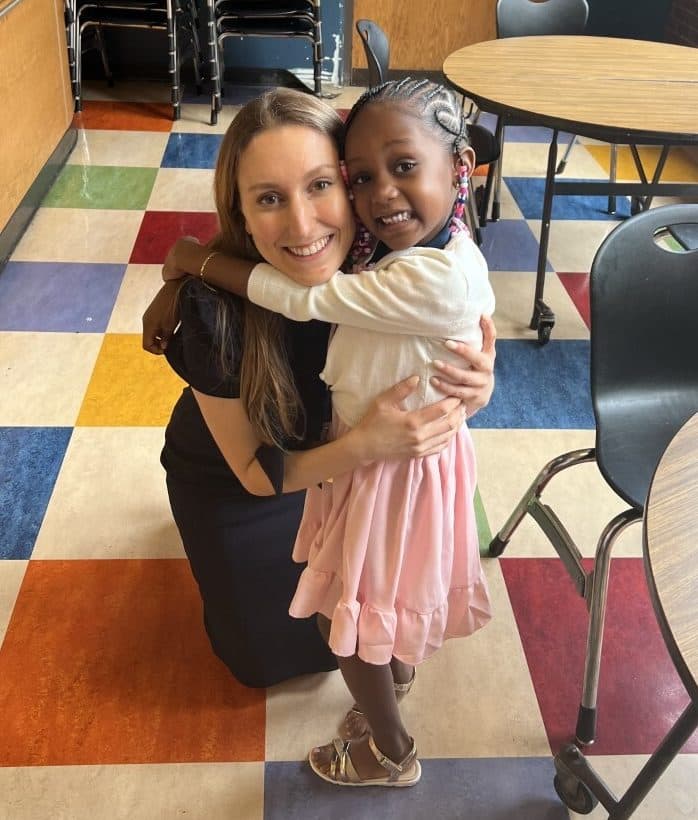
Berol Dewdney, a Pre-K teacher at the Commodore John Rogers School in Baltimore, was recently named Maryland's State Teacher of the Year.
Out West, Tara Hughes, a special education teacher at the Nye Early Childhood Center in Santa Fe, is now New Mexico's State Teacher of the Year. They'll both be in the running for National Teacher of the Year this spring.
The National Teacher of the Year award for instance has been around since the 1950s, but it didn't go to a preschool teacher until two years ago.
Hughes and Dewdney share how they hope their awards are a sign that our culture is starting to embrace the importance of early education in a child's life.
Interview Highlights
On what’s top of mind after winning the award
Tara Hughes: “I never imagined that I would be recognized for doing what I love so much, and I'm just so honored and proud to be able to represent all teachers, but especially early childhood educators.”
Berol Dewdney: “I think about my kids. I think about how they're the real teachers of the year. I think about Dakari and Kiara and Takai … they bring the leadership, and the love and the joy. It's our life's greatest privilege to elevate their power and to work with their families. And this platform, this space, is completely theirs.”
On the importance of early education
Dewdney: “We're at a really pivotal moment in our country with this, because we know early childhood education matters in terms of its long term impacts on life trajectories. But if we really want to transform public education, we have to not just understand that it matters, but we have to get it right in a lot of different contexts.
“What serves my children best is play-based learning that allows kids the space to learn in the place where they learn best. Play is the language of students, it's where they're the experts and it's where they're able to have a lot of fun and have a lot of joy, but also develop the critical executive functioning skills that determine life outcomes.”
On brain-based education for young children
Dewdney: “When I think about my classroom, it's all about how can we build the strongest, healthiest brain architecture. And that's sort of what I do for my kids … is that play-based and culturally responsive teaching that's rooted in love and the science of brain development. What that means in terms of brains is that if we want to grow brains, we have to actually understand how they learn and we have to honor their needs. That means giving students space to develop the mental tools that enable them to do things like pay attention, to blend sounds into words, to have working memory, all the things.
“The phrase — or the umbrella — that those skills are under is something called executive functioning skills. And those you can essentially think of as the air traffic controllers of the very busy airport that is our brain. They ensure a smooth takeoff and landing of all other learning. So it's really critical that we get all of our kids these skills.”
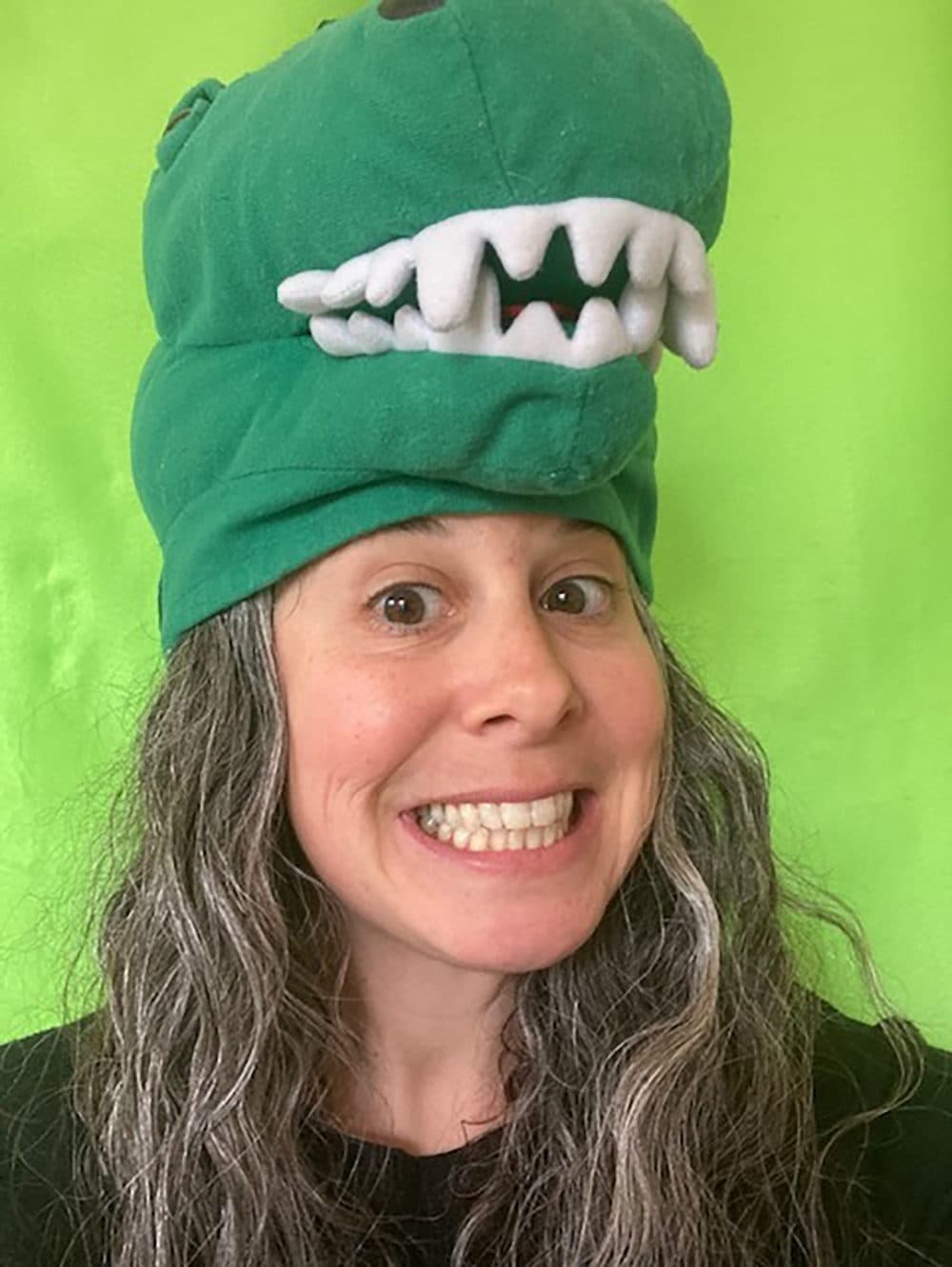
On advocating for inclusion and social emotional learning
Hughes: “I have an inclusion classroom and I have neurotypical and neurodiverse students, and we all learn from the same curriculum according to their individual strengths and abilities.
“A neurodiverse student may be a child with autism and maybe a student with Down syndrome. It may be a student who has speech and language delays or receives occupational therapy to support their fine motor development and also gross motor [skills] … So the inclusion model is that we're all in this, they're all in the same classroom together and we all learn and have a community together of students. All of these students — with diverse abilities and backgrounds — they play, socialize, they learn together, which then respect, kindness, friendships and understanding of differences really grow.”
On play-based learning
Dewdney: “Playing is not just cute. Play is powerful. So before students were making this smoothie, they were writing play plans to plan what they were playing. They were using their writing as a tool to learn and to help them remember what they were going to play.
“When kids are pretending to be chefs and bakers, doctors, zookeepers, they're able to make the most cognitive, social and emotional growth. And what's really important to me is that they're able to explore the world by essentially creating the one that they dream of alongside their peers. And I think that's how we really create a space where education can really become the practice and freedom that we want it to be.”
On pandemic’s impacts on little ones
Dewdney: “I think it’s centered the need for us to all heal, that everybody needs healing. Everyone needs a felt sense of safety and love in order to learn. And then what always remains true of learning still remains true in the virtual space. Kids need to have experiences where they're learning together. They need targeted feedback in the moment. And teachers also need the space and support to develop getting their students those things.”
Hughes: “I’m coming from a special education point of view. I really had to try to figure out how to support my students and being able to do that virtually. So how do I present them multiple ways of being able to show me their knowledge through a screen in the classroom? You can provide different opportunities for them to show their strengths through their communication in their language. But being able to rewrite that and figure out, okay, how am I going to support this student? So if they don't have that language to communicate with me, how am I going to get them to show me their strength and what they know? And that was really trying to really frame and redefine the education and being able to see their strengths.”
On what gives them hope
Hughes: “New Mexico is really in the forefront of early childhood. We are promoting universal preschool for everyone. And now with amendment one that was just passed, there's more funding coming through. So I really believe that we are in the forefront of early childhood and that this is opening up a lot of opportunities for us.”
Dewdney: “Kids, teachers, their families. Everything that we see on the ground working. There's this narrative often that we are in this place of defeat and despair and it's just not true. I think our story is one of hope and it's one of power and it's what we experience with our kids in our classrooms every single day.”
Ashley Locke produced and edited this interview for broadcast with Gabe Bullard. Locke adapted it for the web.
This segment aired on December 5, 2022.
